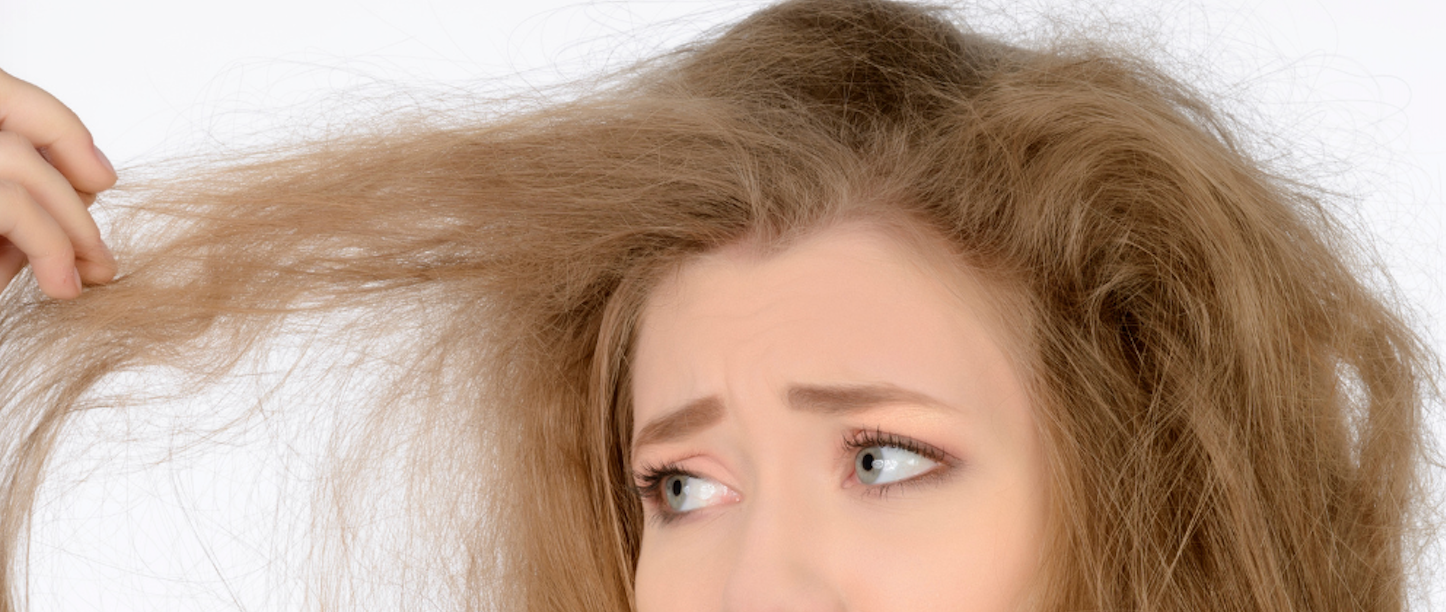We've all experienced those bad hair days when our locks seem to have a mind of their own. One common culprit behind lackluster hair is moisture imbalance. Dry hair and dehydrated hair are terms often used interchangeably, but understanding the nuances between the two can be a game-changer in your haircare routine. Let's delve into the intricacies of dry and dehydrated hair and explore how to restore vitality to your mane.

Dry hair is a condition that occurs when the hair lacks essential oils and lipids, leaving it brittle, rough, and prone to breakage. The natural oils produced by the scalp, known as sebum, play a crucial role in keeping the hair shaft moisturized. and properly hydrated. When these oils are insufficient, the hair cuticle becomes porous, allowing moisture to escape and leaving the hair vulnerable to environmental stressors.
Causes of Dry Hair:
- Excessive Washing: Frequent washing can strip the hair of its natural oils, leading to dryness. This is especially true when you use shampoos with sulfates. Always look for a sulfate-free shampoo like MASAMI.
- Heat Styling: Excessive use of heat styling tools such as flat irons and blow dryers can sap moisture from the hair. Use a hair towel instead, even just swapping it out half the time makes a difference. MASAMI's hair towel is fast drying and sustainable - made from plastic water bottles.
- Chemical Treatments: Harsh chemicals in hair dyes, perms, and relaxers can damage the hair cuticle, causing dryness.
Dehydrated hair, on the other hand, is a result of insufficient water content within the hair shaft. While the scalp may produce enough sebum, the hair itself lacks the necessary hydration to maintain flexibility and shine. Dehydrated hair tends to feel rough and coarse, and it may appear dull and lifeless.
Causes of Dehydrated Hair:
- Environmental Factors: Exposure to sun, wind, and dry air can contribute to the dehydration of hair.
- Dietary Habits: Inadequate water intake and a lack of essential nutrients can impact hair hydration.
- Medical Conditions: Certain health conditions and medications may affect the hair's ability to retain moisture.
To distinguish between dry and dehydrated hair, it's essential to assess the texture, appearance, and overall health of your locks. Dry hair is often characterized by brittleness, split ends, and a lack of natural shine. Dehydrated hair, on the other hand, may feel coarse, look dull, and lack elasticity.
Restoring Moisture Balance: Regardless of whether your hair is dry or dehydrated, restoring moisture balance is key to achieving healthier locks. Here are some tips to help you add hydration and address each condition:
-
Dry Hair Care: a. Use a hydrating shampoo and conditioner. b. Incorporate deep conditioning treatments regularly. c. Limit heat styling and protect hair with heat-protectant products.
-
Dehydrated Hair Care: a. Stay hydrated by drinking enough water. b. Use a leave-in conditioner to lock in moisture. c. Avoid excessive exposure to sun and harsh weather conditions.
Understanding the difference between dry and dehydrated hair empowers you to tailor your haircare routine to address specific needs. By adopting a holistic approach that combines hydration, nourishment, and protection, you can transform your hair from lackluster to radiant, healthy, hydrated hair, ensuring that every day is a good hair day.



